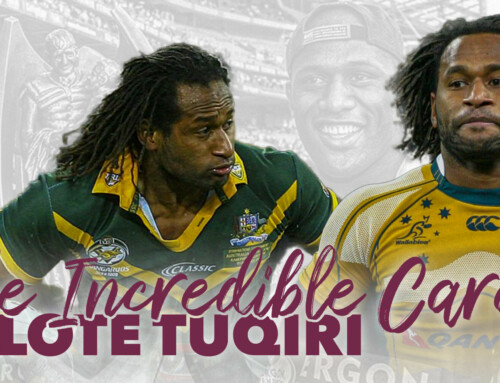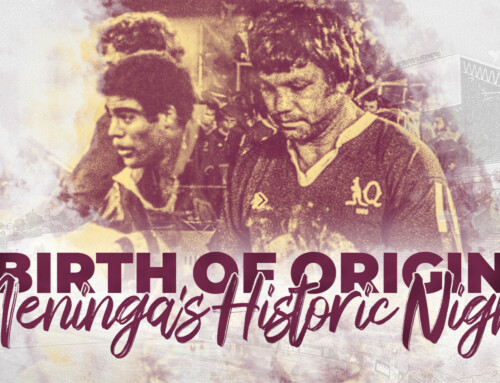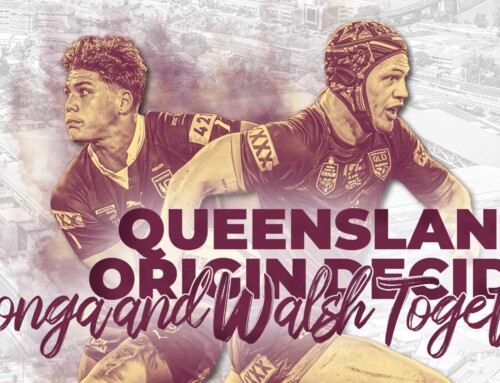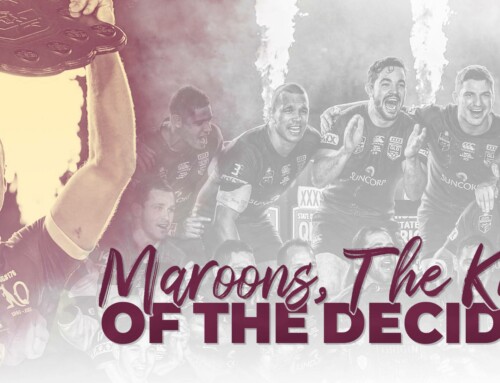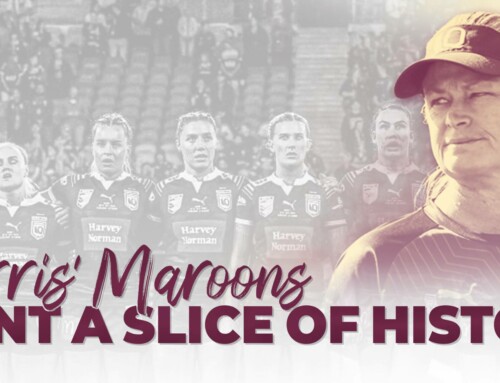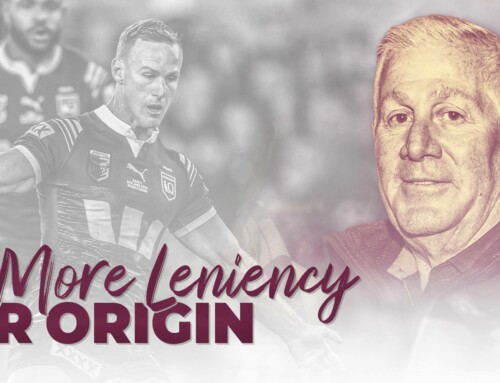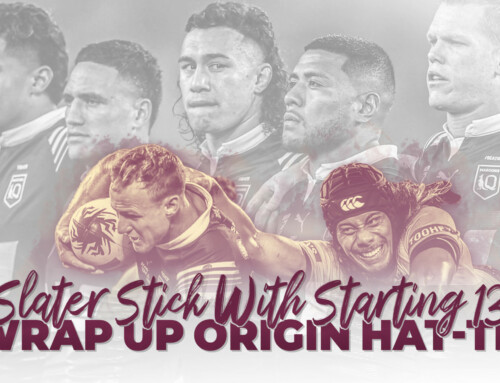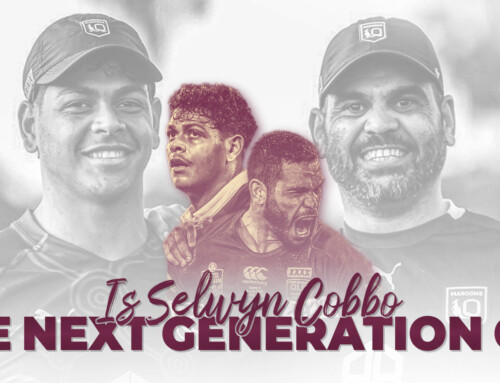Former Crushers captain Trevor Gillmeister says the Dolphins will succeed where the now-defunct South Queensland club could not by attracting fans who support the game, rather than the club.
The Dolphins have the green light to join the NRL as its 17th franchise in 2023, and are wasting no time being aggressive in the player market in readiness for their debut.
While a host of State of Origin stars have naturally been linked to Queensland’s newest club, FOG No.195 Felise Kaufusi became the first Maroon to commit by announcing he would join coach Wayne Bennett at the Dolphins on a three-year deal from 2023.
While there is a great deal of excitement around the Dolphins’ entry to the NRL, there are lingering scars from the last time rugby league put a rival franchise up against the Broncos in Brisbane.
The South Queensland Crushers, North Queensland Cowboys, the Auckland Warriors and the Perth-based Western Reds all joined the Australian Rugby League competition when the game went on the biggest expansion push in its history to create a 20-team league in 1995.
But it was a baptism of fire for those clubs as the Super League war erupted at the start of their first season, dividing the game and driving it to the brink of implosion as the code splintered into two rival competitions in 1997.
When the code unified and came together under the new National Rugby League in 1998, the Crushers were among those sacrificed to cut back on the number of clubs, which had ballooned to 22 professional franchises the year before.
In the process, the Broncos were handed back their monopoly in Brisbane, which – outside of the Crushers’ three-year stint – they will have held for 34 years by the time the Dolphins run onto Suncorp Stadium in 2023.
But Gillmeister says, had it not been for the Super League war, the Crushers would have survived and thrived in a Brisbane market flooded with rugby league fans who don’t support the Broncos.
“The Crushers were just killed by timing,” the former Queensland skipper said. “Super League killed off any chance the Crushers had of surviving, because the Broncos wanted Brisbane to themselves.
“So when they competitions came back together, the Crushers had to go.
“It was a shame the Crushers were never given a fair chance. People forget that the Crushers got big crowds in that first year because there were so many league fans in Brisbane who didn’t support the Broncos.”
In the Crushers’ first year, they played 11 home games at Suncorp Stadium, averaging a crowd of more than 21,000 for each game.
This was at a time when Sydney clubs like the Roosters, Rabbitohs, Tigers and Magpies were regularly drawing crowds of less than 5000 to home games.
The Crushers’ Brisbane derby game against the Broncos at ANZ Stadium that year drew 49,607.
Gillmeister says, nearly three decades on from the Crushers’ debut, the Dolphins will be able to ride on the back of Queenslanders’ love of rugby league to establish themselves in the marketplace – even if people don’t consider themselves “Dolphins fans”.
“It might be hard to get the rusted-on local footy supporters to get behind the Dolphins,” he said.
“The dyed-in-the-wool fans from Wynnum, Valleys, Norths, Brothers, Easts and everywhere else probably aren’t going to embrace the Dolphins, because they have spent their entire footy lives cheering against them.
“People are passionate about their football, and if they have grown up hating Redcliffe because they supported someone else, they’re not just going to forget all that and go and buy themselves a red-and-white shirt.
“On the other side of the coin though is the fact that a lot of people that go to Broncos games are not Broncos supporters. They just want to watch football.
“The Dolphins games will be the same – fans might not support them, they just want to watch footy. And there is nothing wrong with that.
“The most important thing is that there is going to be an NRL game on in Brisbane every weekend.
“There are a lot of rugby league fans in Brisbane who don’t go for the Broncos, but they do go to Broncos games.
“Especially with older, retired people who just love the game – they might be rusted-on fans of the Roosters, or St George or any of the older clubs going back to the 60s, 70s and 80s, and they aren’t going to change their teams.
“But they will always turn up when their team comes to town, and they will turn up on the other weekends as well because they just like watching footy, having a few beers and having a good day out.
“When the Dolphins come in, they will be able to do that every weekend – and that has to be a good thing for footy.”



